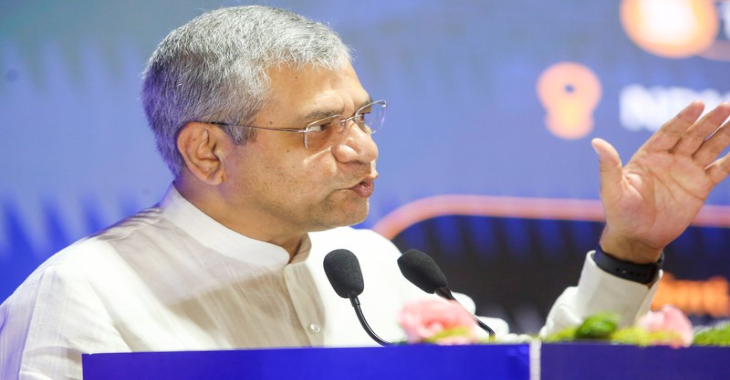According to the government, India is moving away from device assembly and toward sophisticated design and chip manufacturing, and the impending milestone in 2nm chip production marks a significant step toward technological independence.
An important milestone in India’s semiconductor development was reached this week when Union Minister Ashwini Vaishnaw opened ARM’s new semiconductor design office in Bengaluru, which will concentrate on next-generation 2 nanometer chip technology.
For the first time, a 2 nm chip is being designed in India. This technology will support high-performance systems, mobile computing, and AI devices of the future.
“Lighter goods result from thinner circuits since they can process more data in less area. More efficiency and lower power consumption are made possible by smaller transistors. According to an official release, they are strategically significant for space exploration, defense uses, and national security.
The statement claims that there are currently ten authorized projects under the India Semiconductor Mission spread across six states, totaling investments of Rs 1.6 lakh crore. To improve the ecosystem, the India Semiconductor Mission has allocated Rs 76,000 crore.
Vaishnaw opened two cutting-edge semiconductor design labs in Bengaluru and Noida in May 2025. These are the first centers in India dedicated to the design of sophisticated 3-nanometer chips.
India had previously produced designs that were 7 nm and 5 nm, but the hinister emphasized that hitting 3 nm represents a new frontier in innovation. India is currently developing 2 nm chips.
By 2030, the local semiconductor market in India is anticipated to reach $100–110 billion, while the worldwide semiconductor industry is predicted to reach $1 trillion.
Chip design is being accelerated by domestic startups funded by the Design Linked Incentive (DLI) Scheme. 72 firms currently use advanced design tools, and at least 23 chip design projects have been approved.
With 28 chips laid out by teams from 25 colleges, student creativity is also increasing. A sizable talent pool is created by the 278 colleges and universities that work on semiconductor design and research.
According to the government, this development solidifies India’s Atmanirbhar Bharat mission and establishes the country as a global leader in the semiconductor sector.
Read More
Today, PM Modi will launch development projects in Gujarat valued at more than Rs 34,200 cr
The results of the 2025 DUSU election will be announced today


